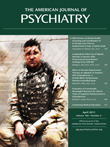Sir Richard Steele, 1672–1729: Early Traumatic Loss and Adult Sequelae

An English dramatist, journalist, and politician, Richard Steele is best known for his collaboration with Joseph Addison in the publication of two periodicals, The Tatler and The Spectator. These dealt with manners, morality, society, and politics and were extremely popular. The authors' partnership has been considered among the most successful in English literature. Following the publication of The Spectator, Steele became politically active, eventually serving two terms in Parliament. His description of himself as an adult in the following passage is suggestive of some depressive traits, including guilt (“remorse”) and oversensitivity. His personality was described by others as warm-hearted, generous, ostentatious, impulsive, and given to carousing; Swift called him “a merry soul.” He was a chronic overspender, debtor, overeater, and overdrinker (1). His childhood grief, which he describes poignantly, may have been an experience that shaped his character, the first manifestation of a bipolar disorder (manifested in adulthood by hypomanic symptoms), or both.
The first Sense of Sorrow I ever knew was upon the Death of my Father, at which time I was not quite five Years of Age…. I went into the Rm. where his Body lay, and my Mother sat weeping alone by it.… She was a very beautiful Woman, of a noble Spirit, and there was a Dignity in her Grief, amid all the Wildness of her Transport, which, methought, struck me with an instinct of Sorrow, which, before I was sensible of what it was to grieve, seized my very Soul, and ha made Pity the Weakness of my Heart ever since. The Mind in Infancy is, methinks, like the Body in Embrio, and receives Impressions so forcible, that they are as hard to be removed by Reason, as any Mark with which a Child is born is to be taken away by any future Application. Hence is, that Good-Nature in me is no merit; but having been so frequently overwhelmed with her Tears before I knew the Cause of any Affliction, or could draw Defenses from my own Judgment, I imbibed Compassion, Remorse, and an unmanly Gentleness of Mind, which has since insnared me into Ten Thousand Calamities, and from whence I can reap no Advantage. (2)
1. : The Life of Richard Steele. London, Isbister, 1889Google Scholar
2. : On the death of Steele's father, in Addison and Steele: Selections from The Tatler and the Spectator. Edited by Allen RJ. New York, Rinehart, 1960, pp 41 –42Google Scholar



